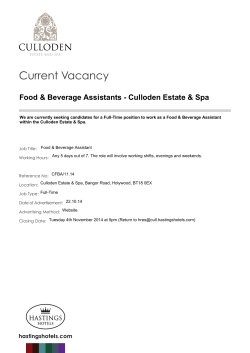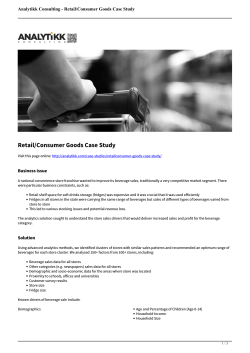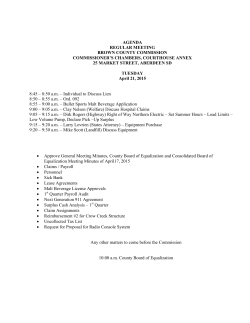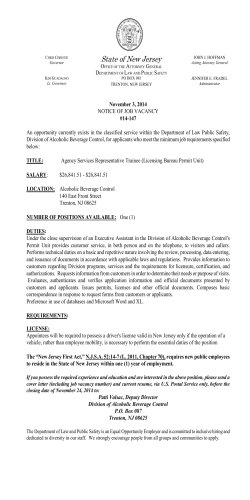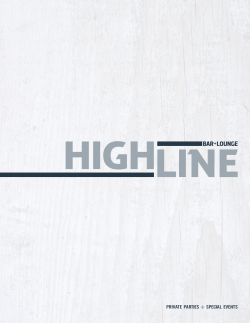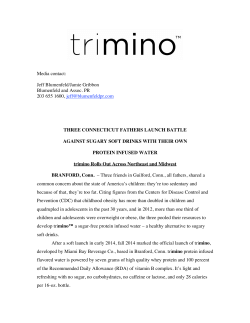
Court: Employer may rely on reasonable belief that disability posed
Serving the cityʹs law profession since 1854 April 2, 2015 Court: Employer may rely on reasonable belief that disability posed direct threat By Michael R. Lied Michael R. Lied, of Howard & Howard Attorneys PLLC, has practiced employment, labor and immigration law for more than 30 years. A frequent author and lecturer on these subjects, he is former chair of the Illinois State Bar Federal Civil Practice Section Council and Employment Section Council. He can be reached at [email protected] and 309 9996311. The 7th U.S. Circuit Court of Appeals occasionally has allowed an employer to defend a discrimination case by establishing it honestly believed that certain facts justified employee discipline or discharge. For example, in Kariotis v. Navistar International Transportation Corp., 131 F.3d 672 (7th Cir. 1997), the employer fired the plaintiff for what it perceived to be disability fraud. The appeals court noted that “a reason honestly described but poorly founded is not a pretext as that term is used in the law of discrimination.” Recently, the 10th Circuit applied an analogous standard to an employer that believed an employee posed a “direct threat” under the Americans with Disabilities Act. Equal Employment Opportunity Commission v. Beverage Distributors Co. LLC, F.3d , 2015 WL 1137043 (10th Cir. 2015). Michael Sungaila, who is legally blind, worked for Beverage Distributors Co. When his position was eliminated, Sungaila obtained a higherpaying job in the company’s warehouse, conditioned on passing a physical examination. Sungaila passed the physical, but the examining doctor said Sungaila would require accommodations to mitigate the risks from his impaired vision. Beverage Distributors concluded it could not reasonably accommodate Sungaila’s impaired vision and rescinded the job offer. Sungaila filed a discrimination claim with the Equal Employment Opportunity Commission, which then sued Beverage Distributors under the Americans with Disabilities Act. Beverage Distributors contended that Sungaila’s impaired vision would create a significant risk of harm to himself and others and that no reasonable accommodation could overcome that risk. 4/2/2015 The jury found that Beverage Distributors was liable for discrimination and that Sungaila was not a direct threat. Beverage Distributors appealed. Under the ADA, an employer cannot discriminate on the basis of a disability. But an employer may decide not to hire disabled individuals if they pose a “direct threat to the health or safety” of themselves or others. 29 C.F.R. Section 1630.15(b)(2). A direct threat involves “a significant risk of substantial harm to the health or safety of the [person] or others that cannot be eliminated or reduced by reasonable accommodation.” 29 C.F.R. Section 1630.2(r). The existence of a direct threat is an affirmative defense to a statutory claim of discrimination. Beverage Distributors therefore could avoid liability by showing that it reasonably determined that Sungaila posed a significant risk of substantial harm to the health or safety of himself or others and that the risk could not be eliminated or reduced by reasonable accommodation. The jury instructions covered “direct threat” in two parts: •“To establish this defense, Beverage Distributors must prove both of the following by a preponderance of the evidence: 1. Mr. Sungalia’s employment in a night warehouse position posed a significant risk of substantial harm to the health or safety of Mr. Sungali and/or other employees; and 2. Such a risk could not have been eliminated or reduced by reasonable accommodation.” •“The determination that a direct threat exists must have been based on a specific personal assessment of Mr. Sungaila’s ability to safely perform the essential functions of the job. This assessment of Mr. Sungaila’s ability must have been based on either a reasonable medical judgment that relied on medical knowledge [or best objective evidence] available at the time of assessment. … An employer’s subjective belief that a direct threat exists, even if maintained in good faith, is not sufficient unless it is objectively reasonable. “In determining whether Beverage Distributors acted objectively reasonably when it determined that Mr. Sungaila was a direct threat, you must consider the following factors: (a) the duration of the risk; (b) the nature and severity of the potential harm; (c) the likelihood that the potential harm would occur; and (d) the imminence of the potential harm.” According to the appeals court, the first part of the instruction required Beverage Distributors to prove more than what was legally necessary. Beverage Distributors should have avoided liability if it had reasonably believed the job would entail a direct threat; proof of an actual threat was unnecessary. The second part of the instruction did not cure the error. This part stated that the jury was to consider the reasonableness of Beverage Distributors’ belief regarding the existence of a direct threat. But the jury was not told why it was to consider the reasonableness of what Beverage Distributors thought. The error was not cured by a reference in the instruction to the reasonableness of the company’s subjective belief. The appeals court concluded that the jury might have relied on the erroneous direct threat standard. The inaccurate standard appeared prominently in the instruction, and the verdict form directed the jury to consider that erroneous standard, thus warranting reversal. 4/2/2015 ©2015 by Law Bulletin Publishing Company. Content on this site is protected by the copyright laws of the United States. The copyright laws prohibit any copying, redistributing, or retransmitting of any copyright protected material. The content is NOT WARRANTED as to quality, accuracy or completeness, but is believed to be accurate at the time of compilation. Websites for other organizations are referenced at this site; however, the Law Bulletin does not endorse or imply endorsement as to the content of these websites. By using this site you agree to the Terms, Conditions and Disclaimer. Law Bulletin Publishing Company values its customers and has a Privacy Policy for users of this website. 4/2/2015
© Copyright 2026

